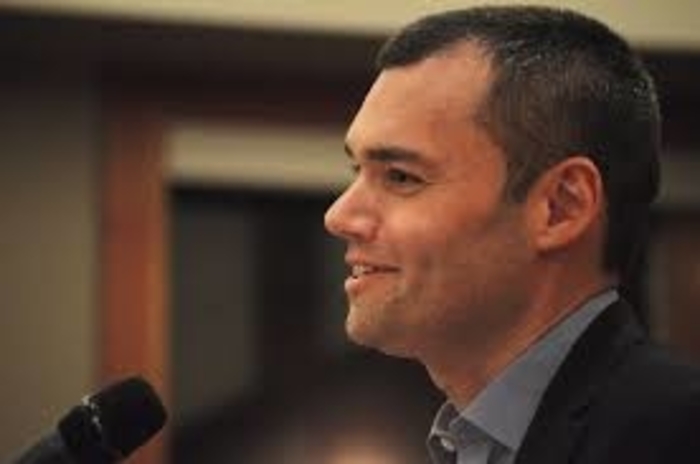Guardian journalist Jonathan Freedland begins his Jewish Chronicle op-ed, “What next, if the two state dream is dead?” July 10, thusly:
Though annexation itself seems to be up in the air, one of annexation’s expected consequences is already materialising: a crisis of faith among those whose Zionist belief in the legitimacy of a Jewish state depended on there being at least the possibility of an eventual two-state solution, but who now see that prospect vanish before their eyes.
Freedland’s op-ed was addressing a recent 7000 word piece by Peter Beinart calling for Jews to embrace a one-state, non-Zionist future, published at Jewish Currents – a shorter version of which was published at the NY Times.
You can read CAMERA’s response to Beinart’s call for the end of a Jewish state here, but Freedland’s framing of the crisis is interesting, as it – correctly we think – casts the (former) Zionism of Beinart and his allies as contingent upon a particular political outcome with the Palestinians. This contingent Zionism suggests that the very legitimacy of Israel is not, as with all other countries, to quote Abba Eban, “axiomatic and unreserved”, but is permanently “suspended in mid-air” awaiting others’ moral approval.
Contingent Zionism negates and erases the fact that Israel is, by any objective measure, a dynamic, successful and democratic state, and demands, as the condition for political and moral international legitimacy, that it facilitate the creation of a Palestinian state. Conversely, this political calculus appears to conclude that no moral demands should be made of Palestinians to be granted the right to statehood and legitimacy.
Whereas, for contingent Zionists, Israeli leaders must reject annexation and continually work to keep the two-state solution alive, less they forfeit their very right to exist, nothing whatsoever is asked of Palestinian leaders. They aren’t asked to create, as Zionists leaders did in the decades before 1948, the apparatuses of statehood – healthy proto-state political and civil institutions which would inspire faith that Palestine won’t become a failed state.
They aren’t asked to promote a culture of peace within Palestinian society, nor to eradicate the PA’s violence and antisemitism-promoting culture, and terror-incentivizing schemes like pay for slay – measures that would inspire Israeli confidence that Palestine wouldn’t become, like Gaza, a terror state.
They aren’t even asked to commit to peace talks with Israel without pre-conditions – the only conceivable way forward in there’s going to be hope in two-states.
As Daniel Gordis tweeted, Beinart doesn’t hold Palestinian leaders even minimally responsible:
@PeterBeinart suggests to @DanielBShapiro all onus should be on Israel. Nothing demanded of the Palestinians. As I note in yesterday's https://t.co/Cl1HEUrnQk, that's part of the problem w/ Beinart's analysis – He writes as if Palestinians have no agency or responsibility. https://t.co/cT5chnI9zp
— Daniel Gordis (@DanielGordis) July 9, 2020
Beinart’s reply is instructive:
"You're not granting Palestinians agency" is hasbara for "You're not blaming Palestinians for their own oppression" https://t.co/cv8uXLFmZd
— Peter Beinart (@PeterBeinart) July 9, 2020
The tweet perfectly sums up contingent Zionism: a Manichean view of the conflict in which Palestinians are the oppressed, and Israelis are their oppressors: full stop. Erased from this moral binary is not just Palestinian agency in the abstract, but the specific actual history of Arab and Palestinian war, terror, intifadas, rejectionism and Jew hatred that fueled (and continues to fuel) the conflict, and have made Israelis more skeptical of Palestinian intentions.
Whilst it’s important not to exaggerate Beinart’s influence, especially given that polls continue to belie his prediction of the community’s waning support for Israel, it’s also undeniable that the radical ideological currents that inform his views are ascendant.
Beinart is trying to sell Jews on a kind of cancel culture writ large.
The same rage and moral certitude that encourages mobs to tear down statues of deeply flawed but nonetheless great and indispensable leaders like George Washington is being channeled to cancel Zionism – the flawed but wildly successful movement that has allowed the “Jewish people and its culture to thrive and flourish as it can nowhere else on earth”.
Though Gordis rightly concluded that such an “unfettered quest for self-immolation…cultural fatigue…and willed oblivion-to-consequences” hasn’t tempted Israelis, history has demonstrated that the seductive power of movements which erase nuance and seek nothing less than the fundamental transformation of society, after which “all things will be changed”, should not be underestimated.




